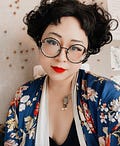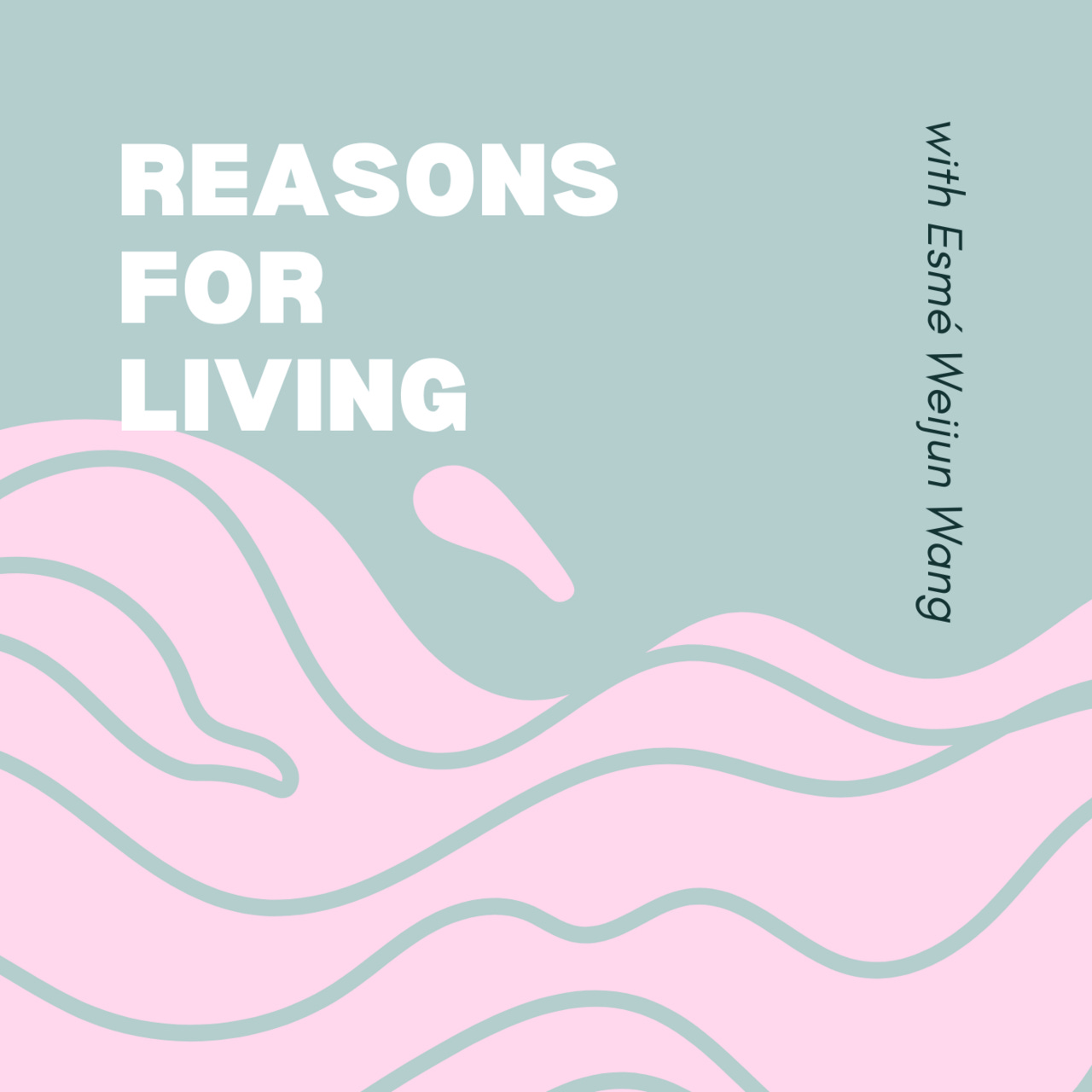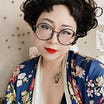Rejection to Success: Esmé Weijun Wang's Journey in Publishing
Breaking Barriers and Redefining Asian American Literature
Asian Writers’ Collective is a publication dedicated to fostering greater understanding and appreciation of Asian cultures and experiences among a global readership. Subscribe to the Asian Writer’s Collective to decolonize your reading and discover unique writing.
Housekeeping reminder to submit your writing by November 15 if you want to be considered as a guest author for the fall quarter!
Esmé’s path to becoming a writer was not straightforward. Raised by Taiwanese immigrant parents with expectations of pursuing medicine or law, she initially studied to become a clinical psychologist. However, after two years as a lab manager in a brain imaging/mood and anxiety disorders lab, Esmé realized her true calling lay elsewhere—one that didn’t involve analyzing statistics. This led her to the University of Michigan, where she earned her MFA in Fiction.
Esmé lives with her husband C and their dog, Daphne. As a neurodivergent individual living with chronic illness, she has crafted a uniquely personal workspace—her office. This maximalist-styled sanctuary, decorated in green and pink with chinoiserie wallpaper, houses her literary endeavors and cherished memorabilia, including a framed poem typed by Sylvia Plath and a note from Daphne du Maurier.
Esmé’s office is more than just a workspace; it’s a sanctuary where she writes, reads, paints, and has epic hours-long phone conversations with her best friend. The room is equipped with a bed, allowing Wang to work lying down—an accommodation necessitated by her chronic illness.
While her early literary inspirations included authors like David Foster Wallace, William Faulkner, and Vladimir Nabokov, Esmé’s influences have evolved over time, reflecting her growth as a writer and her unique perspective on the literary world.
You take on some heavy and complex topics in your novel, “The Border of Paradise.ˮ Can you discuss what inspired you to explore these themes?
Iʼm often drawn to heavy and complex topics, perhaps because my life has thrown a lot of heaviness and complexity my way. The tong yang xi idea, however, surprisingly originated from my own idea of having William and Gillian (the young siblings of the book) coerced into a romantic relationship by their mother; when I was telling my own mother about the idea, she said something like, “Oh, thatʼs like what happened with tong yang xi in China and Taiwan.ˮ Iʼd never heard of this before—but when I did some research into it, I learned that it was, indeed, a real (but mainly historic) tradition that was mostly dead by the 80s. Other themes that I explored were mental illness, obsession, and racism. I didnʼt think to myself, “I will now take on some heavy and complex topics.ˮ They just happened to appear in the book.
How do you balance your artistic integrity with the expectations of the market and the publishing industry?
This question is interesting to me because after The Border of Paradise was rejected 42 times and it looked like I would need to give up on the book entirely, I became quite frustrated with my MFA program for not encouraging us to write toward the market. Both of my books, in fact (The Border of Paradise and The Collected Schizophrenias) were discouraged by the market and the publishing industry—Border was rejected until my then-agent told me I had to write another book instead of hoping for that one to be published, and my idea for The Collected Schizophrenias was discouraged by the same then-agent. In both cases, I sold the books myself to, respectively, a micro press and an indie press, and my then-agent was able to handle the legalities (and took a cut of the money that resulted). So Iʼm not a really good person to ask about this; I wrote what I wanted to write and I think I only published both books by the skin of my teeth.
I imagine that thereʼs an alternate world in which Iʼm still writing things that arenʼt being published. But now that my first book allowed me to be picked as one of the twenty-one Best of Young American Novelists by Granta, which is an honor thatʼs only given out once a decade, and my second book has reached a sizable amount of critical and commercial success, publishers are much more interested in what I want to write. Iʼve received excited “weʼd love to work with youˮ emails from publishers that rejected me previously, and I find that very interesting.
You write openly about living with mental and chronic illness, and help other writers living with limitations. How do you balance the demands of running your own business, meeting book deadlines, and caring for yourself?
I try my best to not work myself into the ground. Actually, at the time of my answering these questions (late August), Iʼve felt on the verge of burnout, having just turned in a solid draft of my next book to my editor and relaunched The Unexpected Shape Writing Academy. But I do build a lot of rest into my days, which is a benefit of working for myself (and is also why I left my 9-to-5 tech job), and if Iʼm really exhausted, Iʼll take on fewer assignments on any given day if I can.
Being an author is a difficult career choice, especially for underrepresented writers. What challenges have you faced, and how did you overcome them? How do you think your unique perspective contributes to the broader literary landscape?
The question about artistic integrity answers this to some degree, I think. Iʼve also encountered some bizarre-seeming racism in my career. For example, right after the Granta award and before I had even written much of The Collected Schizophrenias, I was said in a major newspaper to be the author of the “autofictionˮ book, The Border of Paradise. After speaking to a few of my BIPOC peers, I learned that I wasnʼt the only writer of color who was said to be writing autofiction, even though Border is clearly not autofiction—it starts with a Polish American man living in the 1940s, for one thing, and Iʼve also never been forced into a romantic relationship with my brother. In my opinion, weʼre often seen to be not ambitious or skilled enough to write anything that isnʼt taken directly from our lives. This is not to say that autofiction writers arenʼt ambitious or skilled, but the element of imagining lives that are not our own seems to be thought of by some as something that marginalized writers are just not capable of.
As Iʼve mentioned before, both of my previous books came extremely close to never being published. But now that theyʼre out there, I feel like they add something to the literary landscape. Iʼve found that my second book, The Collected Schizophrenias, has spawned more academic papers and publications than I would have ever imagined, and my first book, which is much less known about, might be called something of a cult classic (if I were to flatter myself). The most obvious contribution that I have is to share what itʼs like to live with certain illnesses. Or you could say that my fiction is written in an invented genre that I call Immigrant Gothic. But in general, I think that I try to write good sentences and I like to tell a story. Itʼs just different because itʼs me.
Youʼve now been in the writing industry for many years. How would you say your writing has evolved, and how do you keep yourself growing as a writer?
My writing has evolved enormously. I donʼt know quite what the answer is to your question, except that I would say living and reading have expanded my mind and my life experiences. The first time that I read Anna Karenina, for example, was a time in which I was exposed to a certain kind of astonishing, painfully accurate human psychology, and Iʼd like to think I learned from that. But there are good books all the time, and I get something from all of the good books that I come across. At the same time, going to see the Guo Pei exhibit here in San Francisco did something to my writing, although I donʼt know if I can express it in words (ironically). Everything adds to the pile.
In both “The Border of Paradise” and “The Collected Schizophrenias,” you address brutal and taboo subjects. This must have been emotionally taxing and challenging to market. Can you share your experience with this process and how you managed to overcome those hurdles?
I teach a class in The Unexpected Shape Writing Academy called “Writing Personal Nonfiction About What Hurts,ˮ and thatʼs basically the sum-up of how I got through writing those books, which were hard. Itʼs funny because the book Iʼm currently working on—I wonʼt spill a potential publication date because itʼs still up in the air right now—is so much harder and more painful to work on than anything Iʼve written before. Iʼve had to have, for example, much more intensive mental health care. More therapy. More carefulness so that I donʼt harm myself in the writing.
Can you tell us more about your upcoming book and why you wrote it?
My upcoming book is a novel called Soft Creatures, about a woman named Sabina Yu who flees her small hometown of Cyprian as soon as she reaches adulthood but is pulled back when she mysteriously inherits the townʼs crown jewel—the world-class Cyprian Hotel—from a family called the Guos that she barely knew. Well, except for once being in love with their teenage daughter, Becky, who, for all intents and purposes, seems to have gone mad and killed herself, which Sabina refuses to believe. Much of the book is about trauma, chronic illness, and queer desire. Oh, and did I mention that the Hotel is haunted?
The novel came from the seed of a story I wrote called “What Terrible Thing It Was,ˮ which was in the Best American Short Stories 2018 collection. In it, thereʼs a gruesome jump-rope rhyme about a girl named Becky Guo who killed herself. ("Becky Guo, Becky Guo, won't you play with me/I can't, said Becky, I'm hanging from a tree" are the first two lines.) That particular story is mostly about having an ECT consult and the 2016 election, but the jump-rope rhyme stuck with me, and that sprouted into becoming Soft Creatures once I knew that I wanted to explore who Becky was, who Sabina is, and what happens to Sabina after she grows up.
In an abstract sense, Iʼm also writing with the brilliant Parul Seghalʼs “The Trauma Plotˮ in mind, because it is very much a book about trauma, and Iʼm trying to do something with it that Parul would approve of, or at least see as less of a typical portrayal of trauma. Iʼm also writing it against a particular very popular book that's heavy with trauma that I hate. I suppose Iʼm writing “againstˮ several things. And I also wanted to deepen my relationship with the Immigrant Gothic.
Thank you so much for having me. You can find me on Substack at REASONS FOR LIVING with Esmé Weijun Wang. People can also receive a FREE, self-paced class from me about kickstarting their writing, whether they've been writing for a long time and are feeling stuck or are beginning to write from scratch. You can learn more about the One-Day Writing Kickstart at http://www.esmewang.com/one-day-writing/. I also teach personal nonfiction writing to ambitious writers living with limitations at http://www.unexpectedshapeacademy.com, which I truly believe is a wonderful resource and is one of the things Iʼm most proud of.
Other than her Substack, the best place to find Esmé is her website. In her words, “Itʼs a much more robust website that I think most authors have, and it will point you to multiple ways of connecting with me depending on what suits you best.”










Thank you for this very informative interview!
✍️🪐💥